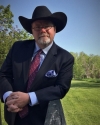- Winter 2020
Syllabus Description:
The full syllabus for Winter 2020 can be on the syllabus page, along with tips for academic success and the 100-point grading scale.
This course takes a panoramic view of religion and politics, focusing on several historical periods and world regions. More than an emphasis on theologies or beliefs, we will examine religious organizations and how they interact with state structures. As such, the more appropriate title for the course might be "Church & State in World History," with "church" being a generic simplifying term that includes synagogue, mosque, temple, etc. Our goal is to understand how various religious institutions, actors and values affect political behavior, and, conversely, how the political actors and institutions affect religious practice. This course will also take a "political economy" perspective to the study of religion, religious institutions, politics, and governments. The emphasis will be on how humans interact with the incentive structures in their environment. Hopefully, not only will you learn empirical content related to religion and politics, but you will pick up concepts related to "the economic way of thinking."
Given the limitations of the 10-week quarter system, we will not be able to cover all the important questions raised in the study of religion and politics around the world, nor will we cover all religious traditions equally. Please be advised of this. Such a course would only be able to address deeper theoretical issues in a superficial manner, substituting depth for breadth. Readings and lectures will be drawn largely from the Christian experience, though we will touch upon Islam and Judaism at points in the class. The intention of the professor is to provide you with a basic familiarity with the literature and, more importantly, the intellectual tools to pursue your own studies of the subject matter.
Grading will consist of two in-class essay exams, section participation, and a short take-home essay.
Prof. Gill was the recipient of the UW Distinguished Teaching Award in 1999.
Snowpocalypse Snowtocol
In the event that there is a snow day that cancels classes at the UW, you will be instructed to immediately proceed outside to enjoy the snow and have fun, whilst being safe. (Don't travel anywhere if you don't have to. Make hot cocoa at home instead.) If there is some snow on the ground in Seattle proper, chances are that there is ten times as much at Prof. Gill's homestead and he may need to postpone classes if the roads are not passable. (One tree across the road can easily cut your fuzzy instructor off from all civilization.)
If we only miss one day due to snow cancellation, proceed as if nothing has changed, continue with the readings, and I will try to adjust the lectures to keep pace.
If there are two days of cancellation, we will bump the syllabus forward one week and potentially jettison Week 10. This will be easier to accomplish if the snow days are concurrent. If multiple snow cancellations happen in different weeks, there will be further notifications. As course concepts tend to build upon one another, it would be difficult to cut something in the middle. Nonetheless, it may be possible for the professor to slim down some of the lecture material mid-course and still cover the important topics introduced in Week 10's readings.
In the event that three classes need to be postponed, "being boundless" will have transitioned into total social chaos. Let's just hope that doesn't happen, but if it does we will go play action and all students scramble for the end zone.
That said, if the course material is truly of interest, you will still have the readings in your possession so that you can pursue them at your leisure following the end of the course. (I realize that there are a mix of students in class, some that want to fulfill the basic requirements so as to move towards a diploma [possibly with a solid GPA] and those who are intrigued by the subject matter and want every opportunity to engage with it. This is not to say the former students are horrible, as I had many courses in college that were of little interest to me.)
If we do push the syllabus forward due to a snow day or week, the essay assignment will still be due on its scheduled date (Friday, February 21). The reason for this is to allow my teaching colleagues to complete the grading assignments.
As with any activity in life, please use common sense to bolster your safety and the safety of those around you. If it is too perilous to travel, stay home. If travel is a must, consider alternative forms of transportation that involve individuals who are trained to drive in snow (e.g., public bus drivers). If you must drive (as a last resort), be sure to carry with you an extra set of warm clothes (especially socks, water resistant footwear, hat, and gloves), extra food/water, a sleeping bag for warmth, a first aid kit, kitty litter (or ice melt), a snow shovel, and other implements that might help get you unstuck. Keep your cell phone charged noting that batteries tend to deplete faster in cold weather. Do not be hesitant to call for help if the situation even remotely warrants.
